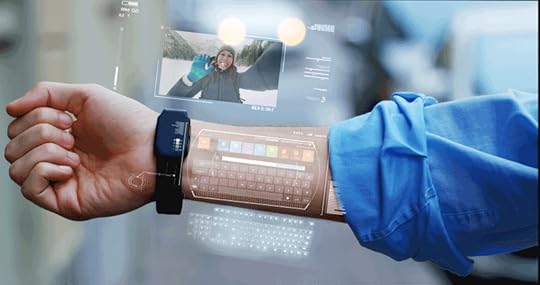It’s goodbye to another laptop

Sometimes the writing flows, sometimes it doesn’t, and while
I prefer writing on a desktop to a laptop, the first drafts of our novels have
been produced on laptops. That’s because
many of them have been written on our work commute.
The first basic requirement for me has always been, “Can
the laptop fit into my handbag?”
This is my third laptop since we started writing the
Linesman novels. The first was a little 10”
Acer Aspire netbook that even ten years ago only cost around $300. It was
a solid little workhorse that lasted four years. The second was a slightly larger laptop (11”)
that weighted four times as much.
That laptop put my back out, broke at least two bags, and
crystallised my second requirement. “How
heavy is it?” Carrying four kilograms of
PC every day wasn’t fun.
I bore it for six months, then bought the little Sony 11”
Vaio that I’ve had for the last five years.
That’s nearing the end of its life, now. The shift keys are broken. I have to press hard on other keys to make
them work. The touchpad isn’t sensitive
any more (thank goodness for touch screen functionality, which has saved my
writing lots of times), and it keeps selecting chunks of text (sometimes the
whole novel) with disastrous consequences if I don’t notice and typing.
Four to five years seems to be the average life of my
laptops. That’s pretty good, given the
amount of work they do.
It’s time to go shopping.
Charles Babbage built his analytic engine back in
1837. Konrad Zuse built the first programmable
computer, the Z1, in the 1930s. (He
built it in his parent’s living room, and if you’ve ever seen a picture of it,
it was a big machine. He must have had very
forbearing parents.) Every one of us
alive today was born in an age of computers.
There’s a massive difference between a computer bought in
the year 1998, and a computer bought in 2008.
Not so much between one bought in 2008 and 2018. I mean sure, there’s more memory and more
power, and some of them are a little lighter, and there are a few more apps, but
you know what I’m going to be using my new laptop for? Word processing. And that’s exactly the same thing I was using
it for ten years ago.
I’m even going to be using the same word processing
software. Microsoft Word.
Sure, we have things like mobile phones and tablets
nowadays, but try writing a story on them.
Until writers come up with a different way of writing stories—maybe by
dictation—we’re still going to need a keyboard and a screen. That limits the technology somewhat.



